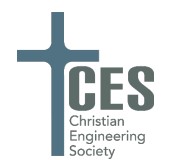Document Type
Paper
Abstract
Artificial intelligence (AI) denotes the ability of machines or systems to perform tasks that normally require human intelligence, such as reasoning, learning, decision making, and creativity. Of the extant AI implementations available, OpenAI’s Generative Pre-trained Transformer 3 (GPT 3) large language model (LLM) released in June of 2020 represented a major breakthrough in AI applications. The world experienced OpenAI’s GPT 3.5 with the release of OpenAI’s ChatGPT 3.5 providing a chat-based interface to the LLM. Over the past year and a half, OpenAI, Google, Microsoft, Amazon, and Meta moved to advance Generative AI (GAI) with more LLMs and advancements that include the generation of audio, video, and software development. While exploring the new advancements, educators began to investigate uses for teaching and learning. In line with that inquiry, we seek to find some of the uses and limitations of GAI for engineering faculty and students from a Christian perspective.
Christian educators need to think critically and biblically about the use and impact of GAI in education and beyond. How does GAI integrate with education from a Christian perspective? How do we assess the benefits and challenges of GAI for engineering education? What are the limitations, risks, and next steps for GAI in engineering education?
Creative Commons License

This work is licensed under a Creative Commons Attribution-Noncommercial-No Derivative Works 4.0 License.
Copyright
© 2024 Xiaowei Chen. All rights reserved.
Publication Date
January 2024
Exploring Generative AI in Christian Engineering Education
Artificial intelligence (AI) denotes the ability of machines or systems to perform tasks that normally require human intelligence, such as reasoning, learning, decision making, and creativity. Of the extant AI implementations available, OpenAI’s Generative Pre-trained Transformer 3 (GPT 3) large language model (LLM) released in June of 2020 represented a major breakthrough in AI applications. The world experienced OpenAI’s GPT 3.5 with the release of OpenAI’s ChatGPT 3.5 providing a chat-based interface to the LLM. Over the past year and a half, OpenAI, Google, Microsoft, Amazon, and Meta moved to advance Generative AI (GAI) with more LLMs and advancements that include the generation of audio, video, and software development. While exploring the new advancements, educators began to investigate uses for teaching and learning. In line with that inquiry, we seek to find some of the uses and limitations of GAI for engineering faculty and students from a Christian perspective.
Christian educators need to think critically and biblically about the use and impact of GAI in education and beyond. How does GAI integrate with education from a Christian perspective? How do we assess the benefits and challenges of GAI for engineering education? What are the limitations, risks, and next steps for GAI in engineering education?

